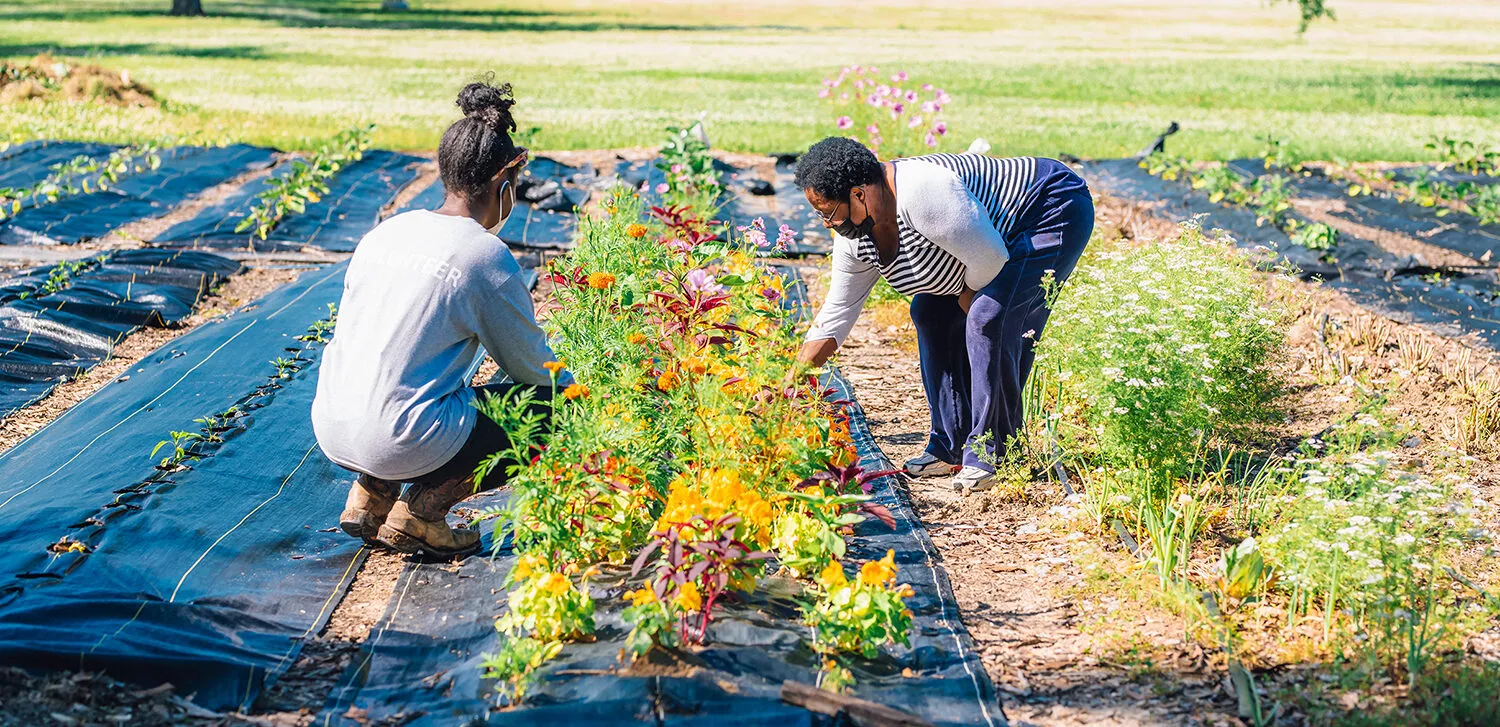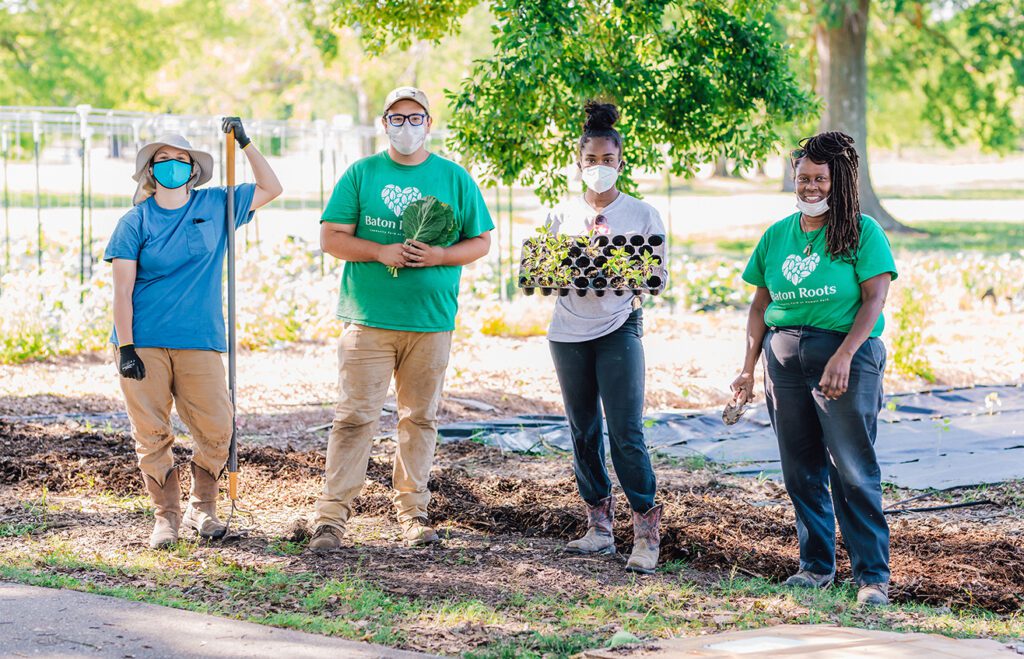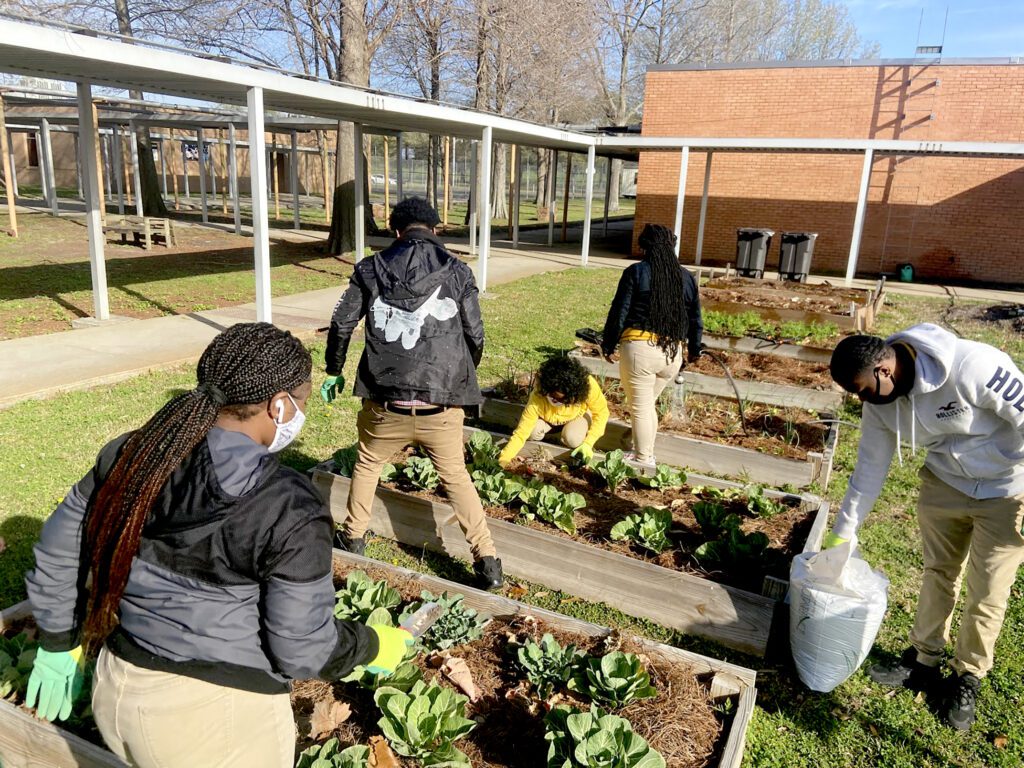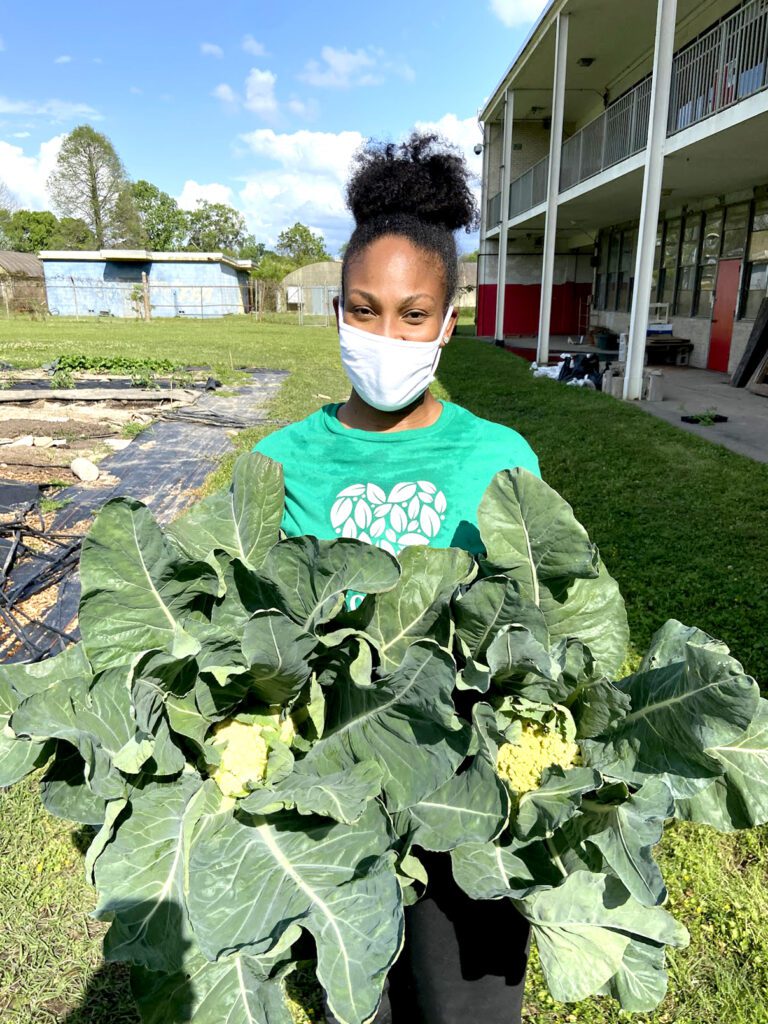
Baton Roots blossoms in its mission to cultivate fresh food options and a sense of community
It’s difficult to flourish during a pandemic, but that’s exactly what the Baton Roots Community Farm has done since its first seeds were planted on a quarter-acre farm plot at BREC’s Howell Park on Winbourne Avenue in mid-2019.
After volunteer programming at the community farm paused during the early months of COVID-19, Baton Roots leadership ramped up food production at the farm to continue providing urban residents with fresh, affordable food options, says Mitchell Provensal, who serves as Baton Roots program coordinator.
Since its inception, the initiative has significantly expanded its farm footprint and hired new staff to counter the growing issue of food insecurity during the pandemic, Provensal says. “COVID really pushed us to expand and stretch way quicker than I imagined,” he says.

Baton Roots is also meeting the needs of the community in the community. Its newest project is a partnership with the East Baton Rouge Housing Authority to develop intergenerational “Harmony Gardens” at 11 local public housing sites, Provensal says. Monthly workshops will be held at these locations to teach residents about maintaining the gardens, and residents will have access to all fruits and vegetables grown there.
Also noteworthy for the Baton Roots Community Farm is a recently awarded $100,000 grant from the National Endowment for the Arts to fund a master plan for the site. Through the grant, the LSU Coastal Sustainability Studio will partner with The Walls Project, Baton Roots’ parent organization, to help with the farm’s long-term vision. This includes solving drainage issues and incorporating art at the farm as well as creating a sustainable growth plan and improving farm accessibility. “The stuff some of the students have been showing us has been really incredible,” Provensal says. “We’re excited.”
At the same time, Baton Roots’ Hustle & Grow program, now at Capital, Scotlandville Magnet and Glen Oaks Magnet high schools, has continued to flourish. The goal of the Hustle & Grow program “is to connect students to urban agriculture and to work with them to address food insecurity issues in the city so we’re teaching students super valuable skills of being able to grow food,” says Provensal. “Then the food that they’re growing is going back into their communities.”

School staff has access to the produce, with some of it sold to community partners and donated to food pantries and churches, he says. Initially, students in the Hustle & Grow program are typically only “mildly interested” in gardening, Provensal says. But that tends to change pretty quickly. “Once we talk about food access issues and why this is important, then they actually see the fruits—or vegetables—of their labor,” he says. “And then they try the produce—that’s when we really catch them.”
Last semester at Scotlandville Magnet High, students refused to try freshly picked carrots until Provensal and other staff ate them first. The students then “all just started laughing because of how good and amazing they were,” Provensal says. “They were just in shock that they grew this. They pulled it out of the ground and they were eating it.”
There’s also a sense of pride that both the student participants and the adult volunteers gain after growing their own food, Provensal says. Roshonna Lee says she began volunteering at the Baton Roots Community Farm late last year when her daughter expressed an interest in gardening. She went to work not only harvesting crops but building raised garden beds. “I appreciate this experience because it’s not just planting seeds,” Lee says. “It takes a little work. But it’s beneficial. It feels good once you see what you’ve accomplished in the end.”

Jacquel Curry began volunteering with Baton Roots earlier this year. Though his father was an avid gardener, Curry says as a child he found tending to growing plants a tedious task. But now helping the community through gardening appeals to him. “I like the whole community aspect of it,” Curry says, “being able to gather with different people across the city and talk about common interests and also at the same time help the low-income areas within that city to help mitigate the whole food desert that we have.”
Curry says volunteers are needed and that volunteers do not need gardening experience. Working with Baton Roots is a great activity during the pandemic because volunteers are always outside and socially distanced in small groups, he says.
Lee has brought home from the farm cauliflower and cabbage as well as tasted edible flowers. “I hope Baton Roots is an organization that continues on,” says Lee. “The community appreciates what they’re trying to do because they are definitely promoting a healthier lifestyle, and that’s something that Baton Rouge needs.”











